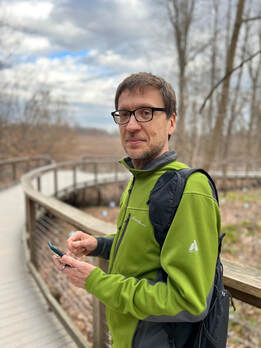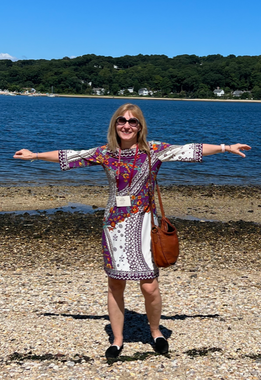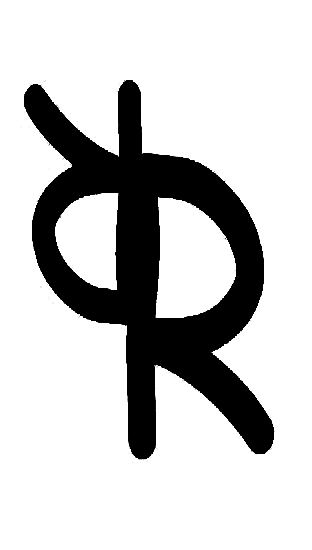
We are helping Ukrainian refugees to start a new life outside their homeland. If you also want to help, please get in touch with us via email for details. We are also on Telegram, Facebook, and Instagram. You can also visit www.ukrainetrustchain.org to learn about an initiative started by our friends to support Ukraine and Ukrainian refugees.

Dimitri Pestov, PhD, Associate Professor
Research Gate Profile
Dimitri Pestov studied molecular biology at Moscow State University in Russia. He then moved to the University of Illinois at Chicago to attend graduate school. After receiving his Ph.D. degree in 1997, he worked at UIC in the laboratory of Dr. Lester F. Lau. He started his own laboratory at the University of Medicine and Dentistry of New Jersey in 2007. He is currently an Associate Professor in the Department of Cell Biology & Neuroscience, Rowan University School of Osteopathic Medicine. The main focus of his research is on ribosome biogenesis in eukaryotes. He is broadly interested in various aspects of ribosome function and RNA metabolism in human disease. Dr. Pestov’s research has been funded by the National Institutes of Health, American Heart Association, American Cancer Society, and New Jersey Health Foundation. He is a Full Member of the Genomic Instability and Cancer Genetics Program, Cancer Institute of New Jersey.
Research Gate Profile
Dimitri Pestov studied molecular biology at Moscow State University in Russia. He then moved to the University of Illinois at Chicago to attend graduate school. After receiving his Ph.D. degree in 1997, he worked at UIC in the laboratory of Dr. Lester F. Lau. He started his own laboratory at the University of Medicine and Dentistry of New Jersey in 2007. He is currently an Associate Professor in the Department of Cell Biology & Neuroscience, Rowan University School of Osteopathic Medicine. The main focus of his research is on ribosome biogenesis in eukaryotes. He is broadly interested in various aspects of ribosome function and RNA metabolism in human disease. Dr. Pestov’s research has been funded by the National Institutes of Health, American Heart Association, American Cancer Society, and New Jersey Health Foundation. He is a Full Member of the Genomic Instability and Cancer Genetics Program, Cancer Institute of New Jersey.

Natalia Shcherbik, PhD, Associate Professor
LinkedIn Profile
Research Gate Profile
Hi there! I am Natalia Shcherbik, and here is my short scientific bio. I received my MSc degree in biochemistry from Novosibirsk State University affiliated with the Institute of Bioorganic Chemistry (Russia) in the lab of Prof. Olga Lavrik, where I studied the structure of the catalytical center of RT from HIV-1. For my PhD work, I moved to the USA as a participant of the students' exchange program that ran for a few years between Russia&USA when these two countries were still friends :)). I joined the Dale Haines' lab at Temple University School of Medicine, where I studied the role of ubiquitination in activation of the ER-bound transcription factors Spt23 and Mga2 from S. cerevisiae (distant relatives of NFkB). I defended my PhD thesis in molecular biology in 2003 in the Center of Virology and Biotechnology (Russia) and continued my journey as a postdoc back in Dale's lab. In 2008, I moved to the lab of Dimitri Pestov at UMDNJ-SOM (which later became Rowan-SOM) for my second postdoctoral training. There, I applied my knowledge and expertise of the ubiquitin-proteasome pathway to elucidate molecular mechanisms that govern ribosome degradation using S. cerevisiae as a model organism. During this time, I secured a Scientific Career Development grant from AHA (American Heart Association) and became a faculty in 2009. I continued exploring the functional connection between ribosomes and the ubiquitin system. This effort resulted in several exciting publications, two awards from the NJ Health Foundation, and paved the ground for my first NIH R01 grant entitled "Translational rescue mechanisms in eukaryotes," which I received in 2016. Thus, I've got an opportunity to build a strong research team and develop my scientific curiosity in several directions, including protein quality control, ribosome surveillance, ribosome's behavior during stress-response, and the role of metals in controlling the translational machinery.
The detailed description of my group's projects is here.
In my free time, I LOVE to travel, hang out with my family and friends and take care of my garden in central city Philadelphia where I reside.




